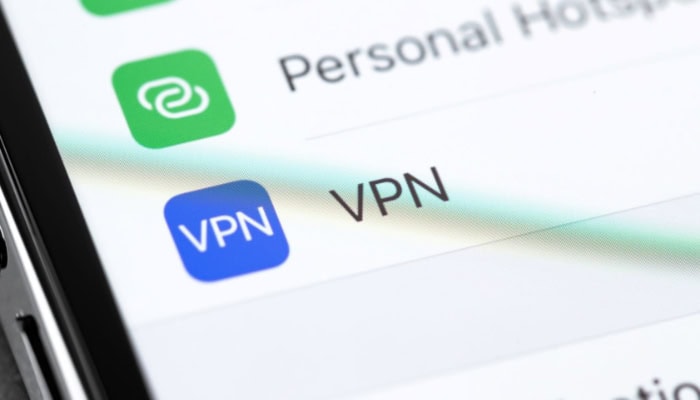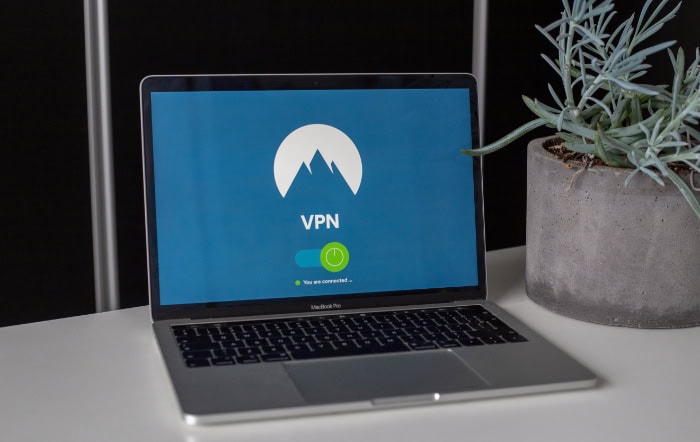VPN Keeps Disconnecting: Quick Fixes for Smooth Surfing

A Virtual Private Network (VPN) serves as your digital shield, safeguarding your online activities and personal data from prying eyes. However, the moment your VPN connection falters, that protective barrier shatters, leaving you vulnerable to a myriad of security threats.
Frequent VPN disconnects not only disrupt your browsing experience but also expose your sensitive information to potential hackers and data thieves. The frustration of constantly battling an unstable VPN connection can be overwhelming, especially when you rely on it for secure remote work or private communication.
Understanding VPN Disconnects and Their Implications
Before we dive into troubleshooting and optimizing your VPN connection, it's crucial to grasp the fundamentals of how VPNs operate and the significance of maintaining a stable connection.
The Mechanics of VPNs and the Importance of Stability
A VPN establishes a secure, encrypted tunnel between your device and the internet, routing your traffic through a remote server and masking your IP address. This process shields your online activities from hackers, ISPs, and other prying eyes.
However, the effectiveness of a VPN relies heavily on the stability of the connection. When your VPN connection drops, even momentarily, your traffic is no longer encrypted, exposing your real IP address and potentially compromising your privacy and security.
Common Culprits Behind VPN Disconnects
Several factors can contribute to VPN disconnects, ranging from software issues to network problems. Some of the most common causes include:
- Weak or unstable internet connection: A poor internet connection can disrupt your VPN, causing it to disconnect frequently.
- VPN server issues: Overloaded or malfunctioning VPN servers can lead to disconnects and instability.
- Software conflicts: Antivirus programs, firewalls, or other security software may interfere with your VPN, causing conflicts and disconnects.
- Outdated VPN client software: Using an outdated version of your VPN client can result in compatibility issues and frequent disconnects.
The Risks of an Unstable VPN Connection
When your VPN connection is unstable, it exposes you to various security and privacy risks:
- Data leaks: During a disconnect, your traffic may revert to your regular, unencrypted internet connection, potentially exposing sensitive information.
- IP address exposure: A dropped VPN connection can reveal your real IP address, compromising your anonymity and location privacy.
- Vulnerability to attacks: Without the protection of a VPN, your device becomes more susceptible to hacking attempts, malware, and other cyber threats.
Diagnosing Your VPN Connection
When faced with frequent VPN disconnects, it's essential to approach the problem systematically to identify and resolve the underlying cause.
Assessing Your Internet Connection Stability and Speed
The first step in diagnosing VPN disconnects is to evaluate the stability and speed of your internet connection. A weak or unstable connection can cause your VPN to drop frequently. To check your internet connection:
- Disconnect from your VPN and run a speed test to assess your connection's download and upload speeds.
- Monitor your connection stability over time, noting any fluctuations or drops in speed.
- If you suspect your internet connection is the culprit, contact your ISP for assistance or consider upgrading your plan.
Identifying Software Conflicts
Antivirus programs, firewalls, and other security software can sometimes interfere with your VPN, causing conflicts and disconnects. To identify and resolve software conflicts:
- Temporarily disable your antivirus and firewall software.
- Connect to your VPN and observe if the disconnects persist.
- If the issue is resolved, add your VPN software to the whitelist or trusted apps list in your antivirus and firewall settings.
- Gradually re-enable your security software, testing your VPN connection after each change to pinpoint the conflicting program.
Examining VPN Server Status and Switching Servers
Overloaded or malfunctioning VPN servers can lead to frequent disconnects. To address this issue:
- Check your VPN provider's website or social media channels for any reported server outages or maintenance.
- Within your VPN client, try connecting to a different server location, preferably one geographically close to you.
- If the issue persists across multiple servers, contact your VPN provider's customer support for further assistance.
Updating or Reinstalling VPN Software
Outdated VPN client software can cause compatibility issues and frequent disconnects. To ensure your VPN software is up to date:
- Check for available updates within your VPN client or on the provider's website.
- Download and install the latest version of the VPN client software.
- If updating doesn't resolve the issue, consider uninstalling and reinstalling the VPN client to eliminate any potential corruption or configuration issues.
Optimizing Your VPN Setup

Once you've diagnosed and resolved any immediate issues causing VPN disconnects, it's time to focus on optimizing your VPN setup for long-term stability and performance.
Selecting the Optimal VPN Protocol
VPN protocols determine how your data is encrypted and transmitted through the secure tunnel. Different protocols offer varying levels of security, speed, and stability. The most common VPN protocols include:
- OpenVPN: Widely considered the gold standard, OpenVPN provides a balance of security and speed, making it suitable for most users.
- IKEv2/IPSec: Known for its stability and fast reconnection times, IKEv2/IPSec is an excellent choice for mobile devices and users who frequently switch between networks.
- WireGuard: This cutting-edge protocol offers high-speed connections and low latency, making it ideal for streaming and gaming.
Consider your specific needs and priorities when selecting a VPN protocol, and don't hesitate to experiment with different options to find the best fit for your setup.
Fine-Tuning VPN Client Settings
Your VPN client software often includes advanced settings that can be adjusted to optimize performance and stability. Some settings to consider:
- Connection timeout: Adjust the connection timeout value to allow more time for your VPN to establish a stable connection before timing out.
- MTU size: Experiment with different Maximum Transmission Unit (MTU) sizes to find the optimal value for your network, reducing fragmentation and improving stability.
- DNS settings: Configure your VPN client to use trusted DNS servers, minimizing the risk of DNS leaks and ensuring consistent name resolution.
Consult your VPN provider's documentation or customer support for guidance on adjusting these settings within their specific client software.
Optimizing Your Network Configuration
The way your network is configured can significantly impact your VPN's stability and performance. Consider the following best practices:
- Wired vs. wireless: Whenever possible, use a wired Ethernet connection instead of Wi-Fi, as wired connections tend to be more stable and faster.
- Router settings: If you're running your VPN on a router, ensure your router has sufficient processing power and memory to handle the encryption overhead. Consider upgrading to a router with built-in VPN support for optimal performance.
- Quality of Service (QoS): If your router supports QoS, prioritize VPN traffic to ensure it receives adequate bandwidth and minimize the risk of disconnects due to network congestion.
Minimizing the Impact of VPN Disconnects
Even with a well-optimized VPN setup, occasional disconnects may still occur. To minimize the impact of these disconnects, consider implementing the following features:
- Kill switch: A kill switch automatically blocks all internet traffic if your VPN connection drops, preventing unintended data leaks. Ensure your VPN client has this feature enabled.
- Split tunneling: Split tunneling allows you to route only specific apps or websites through the VPN while the rest of your traffic uses your regular internet connection. This can help reduce the load on your VPN and minimize the impact of disconnects on non-sensitive activities.
Selecting a Reliable VPN Service
While optimizing your VPN setup can significantly improve stability and performance, the foundation of a reliable VPN experience lies in choosing a reputable and trustworthy VPN service provider.
Importance of a Reputable Provider
Entrusting your online privacy and security to a VPN provider is a significant decision. A reputable VPN provider should have a proven track record of protecting user data, maintaining a stable network, and being transparent about their practices.
Avoid free VPN services, as they often come with hidden costs, such as selling user data or displaying intrusive ads. Instead, opt for a paid VPN service from a well-established provider with a clear privacy policy and a commitment to user security.
Essential Features for a Stable VPN Service
When evaluating VPN providers, look for the following essential features that contribute to a stable and reliable VPN experience:
- Extensive server network: A wide network of servers across multiple locations ensures better load balancing, reduced congestion, and improved connection stability.
- Diverse VPN protocols: Support for multiple VPN protocols, such as OpenVPN, IKEv2/IPSec, and WireGuard, allows you to choose the best protocol for your needs and switch between them if necessary.
- Robust client software: Well-designed, user-friendly VPN client software with advanced features like a kill switch, split tunneling, and customizable settings can greatly enhance stability and performance.
Evaluating VPN Performance and Reliability
Before committing to a VPN service, it's crucial to assess its performance and reliability. Consider the following factors:
- Speed tests: Conduct speed tests using tools like Ookla Speedtest or Fast.com while connected to various VPN server locations to gauge the provider's overall speed and consistency.
- User reviews: Read reviews from trusted sources and user forums to get insights into real-world experiences with the VPN provider, focusing on aspects like connection stability, customer support, and overall reliability.
- Trial periods and money-back guarantees: Take advantage of trial periods or money-back guarantees offered by VPN providers to test the service firsthand before making a long-term commitment.
Recommended VPN Services
Based on the factors discussed above, some VPN services known for their stability and user support include:
- ExpressVPN: Offers a vast server network, robust security features, and excellent customer support.
- NordVPN: Known for its strong privacy practices, fast speeds, and user-friendly interface.
- ProtonVPN: Provides a secure and reliable VPN service with a focus on privacy and transparency.
- Surfshark: Offers a cost-effective, feature-rich VPN service with unlimited device connections.
Remember, while these recommendations are based on general consensus, individual experiences may vary. Always conduct thorough research and take advantage of trial periods to find the VPN service that best suits your specific needs and preferences.
Conclusion
Frequent VPN disconnects can be frustrating and compromise your online security, but by understanding the causes and implementing the right troubleshooting steps, you can significantly improve your VPN's stability and performance. Start by systematically diagnosing the issue, considering factors such as your internet connection, software conflicts, VPN server status, and client software updates.
Once you've identified and resolved the immediate problem, focus on optimizing your VPN setup by selecting the best protocol for your needs, fine-tuning client settings, configuring your network for optimal performance, and utilizing features like a kill switch and split tunneling to minimize the impact of potential disconnects.
However, the foundation of a stable and reliable VPN experience lies in choosing a reputable VPN service provider. Prioritize providers with extensive server networks, diverse protocol options, robust client software, and a proven track record of performance and user support.
By conducting thorough research, evaluating factors like speed tests and user reviews, and taking advantage of trial periods, you can find a VPN service that meets your specific needs and ensures a consistently stable and secure connection.
Armed with this knowledge and a proactive approach to maintaining your VPN, you'll be well-equipped to tackle VPN disconnects head-on and enjoy a seamless, secure online experience. Remember, investing time and effort into optimizing your VPN setup is a small price to pay for the peace of mind and protection it provides in an increasingly digital world.


